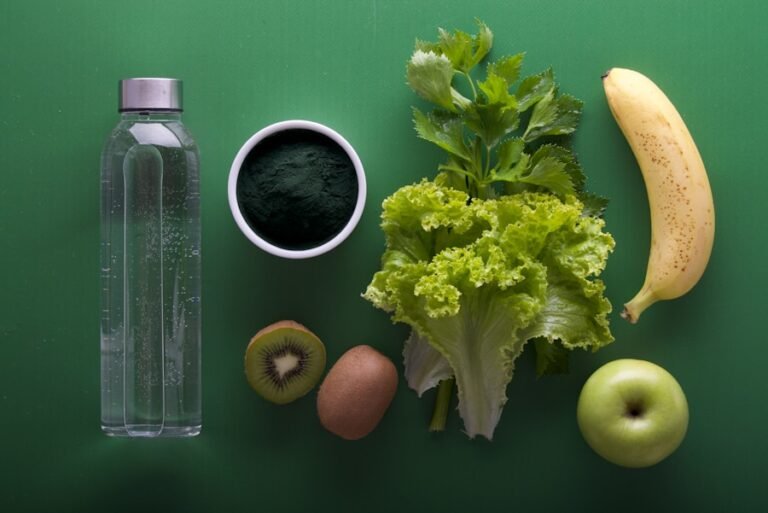Are Home Remedies Effective? Unveiling the Truth Now!
Are Home Remedies Effective? Home remedies have been used for centuries by different cultures around the world to treat various ailments. They are cost-effective, easily accessible, and often have minimal side effects compared to pharmaceutical drugs. Scientific evidence supports the effectiveness of certain home remedies, making them a viable option for those seeking natural remedies that work.
Are Home Remedies Effective – Key Takeaways:
- Home remedies have a long history of effectiveness and are supported by scientific research.
- They offer natural alternatives to traditional medicine and can be beneficial for a range of common ailments.
- It is important to approach home remedies with caution, consider individual factors, and consult with healthcare professionals when necessary.
- With the right knowledge and moderation, home remedies can play a valuable role in promoting better health and well-being.
- Scientific evidence supports the use of home remedies as effective treatments.
The Power of Home Remedies
Home remedies have long been trusted for their effectiveness in treating common ailments. They offer a natural and cost-effective alternative to traditional medicine, allowing individuals to take control of their own health. With readily available ingredients found in our kitchens or gardens, DIY home remedies have become increasingly popular for their accessibility and convenience.
Passed down through generations, these remedies have stood the test of time and continue to provide relief for a range of ailments. Whether it’s a sore throat, nausea, skin irritations, or digestive issues, there’s a home remedy that can help. The power of home remedies lies in their ability to harness the healing properties of natural ingredients.
Home remedies offer more than just symptom relief. They work holistically to address the root cause of the problem, supporting the body’s natural healing processes. By utilizing the power of nature, these remedies provide a safe and effective way to promote better health and well-being. So, the next time you’re faced with a common ailment, consider reaching for a DIY solution. You may be pleasantly surprised by the results.
The Benefits of Home Remedies:
- Cost-effective: Home remedies are often more affordable than over-the-counter medications.
- Natural ingredients: DIY remedies utilize natural ingredients found in our homes.
- Minimal side effects: Compared to pharmaceutical drugs, home remedies have fewer side effects.
- Accessible: These remedies are readily available and can be easily prepared at home.
- Empowering: Using home remedies allows individuals to take control of their own health.
“Home remedies offer a natural and cost-effective alternative to traditional medicine, allowing individuals to take control of their own health.”
By incorporating home remedies into our healthcare routines, we can tap into the power of natural healing and work towards a healthier, more balanced life. From sore throats to digestive issues, these remedies provide alternatives that are not only effective but also promote a deeper understanding of our bodies and their natural healing abilities. So why not explore the world of home remedies and discover the benefits they can offer for your health?
Ginger for Nausea
Ginger, a versatile and widely accessible root, has been used for centuries to alleviate nausea and stomach discomfort. Its natural anti-inflammatory and antiemetic properties make it a safe and effective home remedy for common problems like morning sickness and motion sickness. Ginger can be consumed in various forms, including fresh, powdered, or as a tea.
Scientific studies have shown that ginger can help reduce the frequency and severity of nausea and vomiting, making it a valuable natural remedy. According to a study published in the Journal of the American College of Surgeons, ginger has been found to be more effective than a placebo in reducing postoperative nausea and vomiting. Another study published in Obstetrics and Gynecology found that ginger supplementation significantly reduced the severity of nausea and vomiting in pregnant women.
Ginger has been used for centuries as a natural remedy for digestive issues, and its efficacy is supported by scientific evidence. It can be a great addition to your holistic approach to better health.
In addition to its antiemetic properties, ginger also aids digestion by stimulating the production of digestive enzymes and promoting the movement of food through the gastrointestinal tract. This can help alleviate symptoms of indigestion, bloating, and irritable bowel syndrome (IBS).
To incorporate ginger into your routine, you can try adding freshly grated ginger to your meals, drinking ginger tea, or taking ginger supplements. However, it is important to note that ginger may interact with certain medications, so it is advisable to consult with a healthcare professional before incorporating it into your regimen.
The Power of Aloe Vera for Skin Irritations
Aloe vera is a natural and proven home remedy for various skin conditions and irritations. This succulent plant has been used for centuries for its soothing properties and healing abilities. Whether you’re dealing with sunburn, dry skin, rashes, or minor wounds, aloe vera can provide relief and promote skin health.
One of the key benefits of aloe vera is its ability to accelerate wound healing. Its gel contains bioactive compounds that stimulate cell growth and repair damaged tissue. Applying aloe vera gel to cuts, burns, or abrasions can soothe the affected area and aid in the healing process.
In addition, aloe vera has anti-inflammatory properties that can reduce redness, swelling, and itching associated with skin irritations. This makes it an effective remedy for conditions like eczema, psoriasis, and dermatitis. Regular application of aloe vera gel can help alleviate symptoms and improve the overall appearance of the skin.
How to Use Aloe Vera for Skin Irritations:
- Choose a fresh aloe vera leaf or opt for a high-quality aloe vera gel.
- Wash the affected area with mild soap and water, then pat it dry.
- Split the aloe vera leaf lengthwise and scoop out the gel using a spoon.
- Apply the gel directly to the irritated skin and gently massage it in.
- Leave the gel on for about 30 minutes to 1 hour, then rinse it off with lukewarm water.
- Repeat this process 2-3 times a day until the irritation subsides.
Remember to perform a patch test before using aloe vera for the first time to check for any allergic reactions. If you experience any adverse effects, discontinue use and consult a healthcare professional. Aloe vera is generally safe for most people, but it’s always best to seek medical advice if you have a severe or persistent skin condition.
Peppermint for Digestive Issues
When it comes to finding natural remedies for digestive problems, peppermint is a popular choice. This vibrant herb, with its refreshing aroma, has long been used to soothe gastrointestinal discomfort and promote healthy digestion. The active compound in peppermint, menthol, has a relaxing effect on the muscles of the gastrointestinal tract, helping to alleviate symptoms such as bloating, indigestion, and irritable bowel syndrome (IBS).
Scientific evidence supports the efficacy of peppermint as a natural remedy for digestive issues. A study published in the journal Digestive Diseases and Sciences found that peppermint oil capsules significantly reduced symptoms of IBS, including abdominal pain and bloating, compared to a placebo. Another study published in the journal Pharmacy and Pharmacology Letters concluded that peppermint oil can effectively relieve symptoms of indigestion.
Peppermint can be consumed in various forms, such as tea, capsules, or as an essential oil. However, it’s important to note that peppermint oil should be used with caution, especially for individuals with gastroesophageal reflux disease (GERD) or gallbladder problems. It’s always best to consult with a healthcare professional before incorporating peppermint or any other home remedy into your routine.
The Benefits of Peppermint for Digestive Issues:
- Relieves symptoms of bloating, indigestion, and IBS
- Promotes healthy digestion
- Has a relaxing effect on the gastrointestinal tract
- Supported by scientific evidence
The Science Behind Home Remedies
Home remedies have long been a part of traditional healthcare practices, and recent scientific research has provided evidence to support their effectiveness. Several studies have been conducted to analyze the therapeutic potential of various natural ingredients used in home remedies.

One study found that honey is more effective than over-the-counter cough medicines in reducing cough symptoms, thanks to its antimicrobial properties. Another study confirmed the anti-inflammatory properties of ginger, making it a promising natural remedy for various ailments, including nausea and gastrointestinal issues.
“Home remedies, when used correctly, can offer safe and effective treatments for common health issues.”
Aloe vera, widely known for its soothing properties, has been validated for its ability to accelerate wound healing and alleviate symptoms of sunburn. Additionally, peppermint oil has shown beneficial effects in relieving symptoms of irritable bowel syndrome, making it a natural remedy for digestive issues.
These scientific findings provide valuable insights into the efficacy of home remedies and support their use as effective treatments for various health conditions. However, it is important to note that home remedies should be used with caution and in moderation. Consulting with a healthcare professional is recommended before trying any new remedy, especially if you have any existing medical conditions or are taking medications.
The Importance of Moderation
When it comes to utilizing home remedies, it is crucial to exercise caution and use them in moderation. While these natural remedies can provide relief and be effective for certain ailments, it is essential to approach them with care and consider individual factors. Not all remedies are suitable for everyone, and some individuals may experience adverse reactions or allergies. Therefore, it is recommended to consult with a healthcare professional before trying any new home remedy.
Using home remedies as complementary treatments alongside modern medicine can be a wise approach. It is important to pay attention to the body’s response and be aware of any potential interactions with existing medications. Moderation is key to ensure that the remedies are used safely and effectively.
Key Points:
- Approach home remedies with caution and consider individual allergies.
- Consult with a healthcare professional before trying any new remedy.
- Use home remedies as complementary treatments alongside modern medicine.
- Pay attention to the body’s response and be aware of potential interactions with medications.
- Moderation is key to using home remedies safely and effectively.
“While home remedies can provide relief, it is important to approach them with caution. Not all remedies are suitable for everyone, and some individuals may experience adverse reactions or allergies.”
By approaching home remedies with moderation and an informed mindset, individuals can harness the benefits of these natural alternatives while minimizing potential risks. The safe use of home remedies is essential for maintaining overall well-being and ensuring that they remain a valuable tool in promoting better health.
Are Home Remedies Effective? Separating Fact from Fiction
When it comes to home remedies, there are often myths and misconceptions surrounding their effectiveness. While many home remedies have been used for generations and have scientific evidence to support their benefits, it is important to separate fact from fiction. Understanding the true effectiveness of natural remedies can help individuals make informed decisions about their healthcare.
One common myth about home remedies is that they are solely based on old wives’ tales and have no scientific backing. However, numerous studies have been conducted to analyze the therapeutic potential of various natural ingredients used in home remedies. For example, honey has been found to be more effective than over-the-counter cough medicines in reducing cough symptoms. Ginger has been shown to have anti-inflammatory properties, and aloe vera has been validated for its wound healing capabilities. These scientific findings support the use of home remedies as effective treatments.
Another myth about home remedies is that they can cure any ailment without any risks or limitations. While home remedies can offer natural alternatives for certain common ailments, it is important to approach them with caution. Factors such as individual allergies, compatibility with existing medications, and the severity of the condition should be taken into consideration. It is always advisable to consult with healthcare professionals before trying any new home remedy.
The effectiveness of natural remedies can vary depending on the individual and the specific ailment. Here are some key points to keep in mind:
- Not all home remedies work for everyone. Individuals may respond differently to different remedies.
- Home remedies should be used as complementary treatments and not as a substitute for medical advice or prescribed medications.
- Some home remedies may have side effects or interactions with other medications. It is important to be aware of any potential risks.
- Home remedies may be more effective for certain conditions or symptoms than others. It is essential to do thorough research and consult with healthcare professionals for guidance.
- Moderation and an informed approach are key when using home remedies alongside modern medicine.
By separating fact from fiction and approaching home remedies with caution, individuals can harness the potential benefits of natural remedies while prioritizing their health and well-being.

The Role of Home Remedies in Healthcare
Integrating Natural Remedies for Better Health
Home remedies have become increasingly popular in healthcare as individuals seek natural and accessible solutions for their well-being. Integrating natural remedies into healthcare practices offers a holistic approach that complements conventional medicine. By incorporating home remedies, patients have the opportunity to take an active role in their health and promote overall wellness.
One of the key benefits of home remedies is their accessibility. Unlike prescription medications, many natural remedies can be found in our kitchens or gardens, making them readily available to all. This accessibility allows individuals to address minor health issues promptly and effectively, empowering them to take immediate action without the need for a doctor’s appointment or a pharmacy visit.
Furthermore, home remedies often have minimal side effects and can be used as preventive measures. For example, incorporating immune-boosting ingredients like garlic or turmeric into everyday meals can help strengthen the body’s natural defenses against common illnesses. This proactive approach to healthcare can play a significant role in reducing the reliance on pharmaceutical interventions and promoting a healthier lifestyle.
While home remedies have proven benefits, it is essential to approach them with caution and in moderation. It is crucial to recognize that not all remedies are suitable for every individual or condition. Consulting with a healthcare professional is highly recommended, especially for chronic conditions or severe ailments. Medical guidance ensures that the chosen home remedies align with existing treatments and accounts for any potential allergies or interactions with medications.
In conclusion, the integration of home remedies into healthcare provides individuals with natural and accessible options to promote their overall well-being. By incorporating these remedies into their daily lives, individuals can take proactive measures to address minor health issues, strengthen their immunity, and enhance their quality of life. However, it is important to exercise caution and consult with healthcare professionals to ensure the safe and effective use of home remedies alongside conventional medicine.
Are Home Remedies Effective – Conclusion
After centuries of use and scientific research, it is clear that home remedies can be effective natural alternatives for better health. These remedies, passed down through generations, offer a cost-effective and accessible approach to healthcare. From honey for sore throats to aloe vera for skin irritations, home remedies have proven their efficacy in alleviating common ailments.
However, it is crucial to approach home remedies with caution and consider individual factors. While they may work for some, they may not be suitable or safe for everyone. It is always advisable to consult with a healthcare professional before trying any new remedy, especially if you have allergies or are taking other medications.
By integrating home remedies with modern medicine and adopting a moderate and informed approach, individuals can take control of their health and well-being. Home remedies have the potential to play a valuable role in promoting better health, but it is important to use them responsibly and seek professional guidance when needed. So, the next time you’re looking for a natural remedy, remember to explore the world of home remedies with an informed and cautious mindset.
Are Home Remedies Effective – FAQ’s
Are home remedies effective?
Yes, home remedies have been used for centuries and have scientific evidence to support their effectiveness for various ailments.
What are some common DIY home remedies?
Common DIY home remedies include using ingredients like honey, ginger, aloe vera, and peppermint to treat different health issues.
How does honey help with a sore throat?
Honey has antimicrobial properties that can fight bacterial infections and soothe throat discomfort.
Can ginger alleviate nausea?
Yes, scientific studies have shown that consuming ginger can reduce nausea and vomiting.
How does aloe vera help with skin irritations?
Aloe vera has soothing properties, accelerates wound healing, reduces inflammation, and helps with symptoms of sunburn.
What digestive issues can peppermint help with?
Peppermint can help relieve symptoms such as bloating, indigestion, and irritable bowel syndrome (IBS).
Is there scientific evidence supporting home remedies?
Yes, several studies have shown the therapeutic potential of ingredients used in home remedies, including honey, ginger, aloe vera, and peppermint.
Are there any precautions to consider when using home remedies?
Yes, it is important to approach home remedies with caution, consider individual allergies and compatibility with existing medications, and consult with healthcare professionals when necessary.
Are there any myths about home remedies?
Yes, some myths about home remedies include the belief that they can cure all ailments and that they are always safer than pharmaceutical drugs.
What role do home remedies play in healthcare?
Home remedies offer natural alternatives to traditional medicine and can be beneficial for certain common ailments, but they should be used in moderation and in conjunction with modern medicine.
Do home remedies really work?
Yes, when used correctly and with the guidance of healthcare professionals, home remedies can be effective in treating various health issues.
Source Links
- https://www.ncbi.nlm.nih.gov/pmc/articles/PMC9742825/
- https://energy5.com/unveiling-the-truth-behind-common-maintenance-and-repair-myths
- https://www.barnesandnoble.com/w/most-effective-natural-cures-on-earth-jonny-bowden/1100408749









